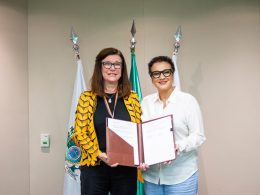The UN Environment Programme’s International Resource Panel (IRP) has called for sweeping reforms to the financial system, governance, and regulation of mineral exploration and mining to enable greater capital flows into responsible mineral supply chains — a prerequisite for a fair and sustainable clean energy transition.
In its new report, Financing the Responsible Supply of Energy Transition Minerals for Sustainable Development, the panel highlights that mineral extraction now accounts for 50% of annual global raw material extraction, up from 31% in 1970. With demand for critical energy transition minerals (ETMs) — including lithium, nickel, cobalt, graphite and rare earths — rising sharply, the report warns that responsible financing will be central to meeting climate goals without exacerbating environmental or social harm.
Global extraction has increased fivefold since 1970, and demand for minerals essential to solar panels, wind turbines and batteries continues to soar. In 2023 alone, demand for nickel, cobalt, graphite and rare earths increased by 8–15%, while lithium demand by 2050 is projected to be nine times higher than 2022 levels.
“The demand for minerals and metals needed for the energy transition requires a mining industry that contributes to sustainable development, while respecting human rights and the environment,” said Janez Potočnik, Co-Chair of the International Resource Panel. “Through sustainable finance, responsible mining can become the default, not the exception.”
Financing responsible mining
Mining is a capital-intensive and high-risk industry, dependent on both public and private financing across exploration, extraction, processing, and site rehabilitation. The report notes that while companies perceive maintaining environmental standards as costly, most estimate the added expense to be less than 25% of operational costs — and acknowledge that strong ESG reporting attracts new investors.
This, the panel argues, puts the financial sector in a powerful position to influence ESG performance through lending and investment decisions. The report calls for linking mining finance directly to climate and nature-positive requirements, excluding projects in protected areas, and ensuring only companies with validated ESG transition plans can access sustainable or climate finance.
Driving circularity and reducing virgin mineral demand
Enhancing circularity in the minerals sector, the IRP says, can reduce the need for virgin material extraction. It recommends recycling targets, green bonds, government-backed financing for recycling infrastructure, and incentives for eco-design to extend product lifespans. Public-private partnerships, awareness campaigns, and a global database for mine tailings could further promote responsible resource use.
Still, even with circularity gains, the scale of required investment remains immense. The International Energy Agency estimates that achieving net zero by 2050 will demand USD 450 billion in mining investments by 2030 and USD 800 billion by 2040.
Supporting small-scale mining and rewarding responsible practices
The report urges improvements in artisanal and small-scale mining (ASM) by formalising labour, enhancing transparency, and offering financial and technical support to improve ESG performance. Establishing an international sustainability framework for ASM would help manage environmental and social risks while improving access to formal finance.
To reward responsible practices, the IRP proposes government-backed certification and incentive schemes, including favourable fiscal policies, improved market access, and recognition of companies and communities that uphold high ESG standards.
Key recommendations
The panel’s recommendations include:
- Strengthening financial institutions’ capacity to finance high-ESG mining operations.
- Developing a digital product passport for all mineral commodities with ESG data.
- Requiring site-specific, gender-sensitive, and community-based ESG reporting.
- Classifying responsible mining as eligible for sustainable and climate finance.
- Establishing a Mining Sustainable Development Fund, financed by a global levy, to support training, innovation, and capacity-building in developing countries.
- Tracking mine tailings and secondary metal availability through a global database.
- Building equitable partnerships between resource-rich and processing countries.
A foundation for global collaboration
The report contributes to the UN Secretary-General’s Panel on Critical Energy Transition Minerals, aligns with the International Council on Mining and Metals’ (ICMM) 2024 commitment to nature-positive mining, and supports the UN Environment Assembly’s latest resolutions on minerals governance.
The authors stress that only through sustainable finance, circular economy principles, and global cooperation can the mineral sector underpin a clean energy transition that is both just and resilient.















